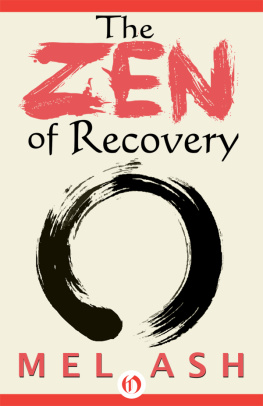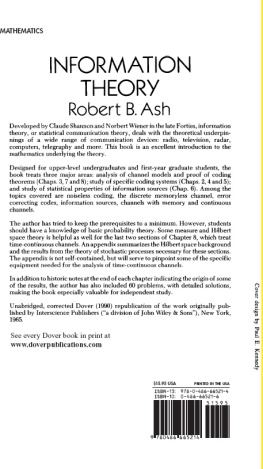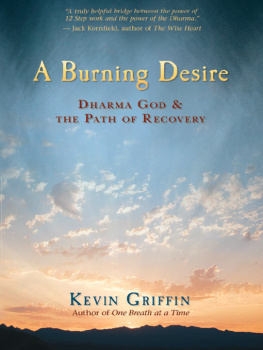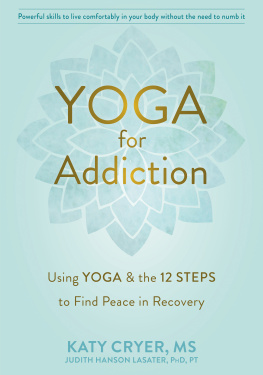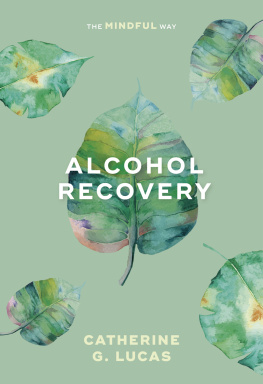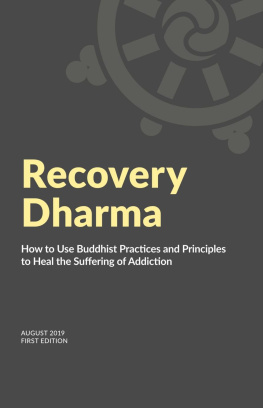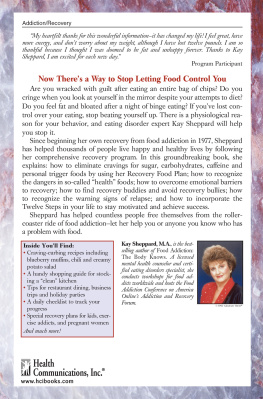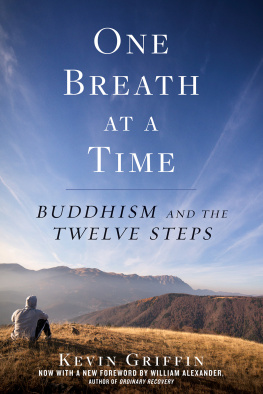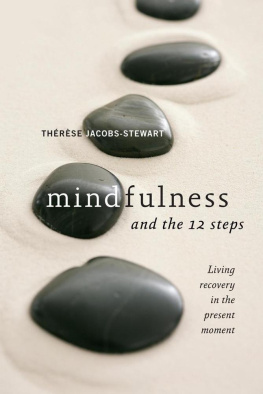The Zen of Recovery

Mel Ash

for Karin
All rights reserved, including without limitation the right to reproduce this ebook or any portion thereof in any form or by any means, whether electronic or mechanical, now known or hereinafter invented, without the express written permission of the publisher.
Copyright 1993 by Mel Ash
ISBN 978-1-4976-3542-5
This edition published in 2014 by Open Road Integrated Media, Inc.
345 Hudson Street
New York, NY 10014
www.openroadmedia.com

CONTENTS

THANKS

To Bill Wilson and Zen Master Seung Sahn, whose teachings and examples taught me how to walk the walk.
To Jack Kerouac and Alan Watts, whose writings and lives taught me how to talk the talk.
To my wife, Eleanor Pascalides Ash, who survived my disease, recovery and the writing of this book, giving me the two children who make it all worthwhile. Your giving has known no bounds. I give you this book in gratitude and love.
To my sons, Aren and Ethan, whom I love beyond all measure, who are the best Zen masters I've ever studied with and who will one day read this book. I hope you are happy and free and that I have made you proud.
To John and Kay Pascalides, my true, loving parents who made me their own and taught me how to accept and give love.
To Susan Bernstein, without whom this book would not have been possible. Thank you for your teaching, generosity of thought and time and 100 percent faith in me and this work. I hope I passed the course.
To Reverend Thomas Ahlburn of the First Unitarian Church of Providence, for his dharma, warmth and humor, for leading us with his vision to new frontiers of American wisdom and for providing a sangha and home for seekers of every sort.
To my Zen teachers: Zen Master Bobby Rhodes, Linc Rhodes, Ellen Sidor, Diana Clark, Nancy Brown, Do Haeng Sunim (Tony Sager), Mu Soeng Sunim, David and Shana Klinger and Sasha Alexander Nemkov ("Zoldat") of Saint Petersburg, Russia.
To Ty Davis of the original NewPaper, for ten years of providing shelter from the storm for innumerable artists, writers, musicians and misfits.
To John Calvi, childhood friend, Quaker healer and angelic songwriter, who once outlined our choices as either suicide or homicide. We've both found a third alternative.
To my literary agent, Barbara Lowenstein, for her unflagging dedication and encouragement; to Jeremy Tarcher, for his enthusiasm and faith in the worth of the project; to my editor, D. Patrick Miller, for his insightful contributions and challenges and to Daniel Malvin, for putting up with all of us.
Also to: Rebecca Beth Topol, who told me to write it all down; Peter Silva; the staff of the NicePaper; the Buddha of Wickenden Street Jonathan Chisholm; Eddie Cho; Brian Cho; Myung Suk Chun; the Buddha of the Blues Mr. Maynard Silva and his consort the mysterious Mari X.; Father Robert Morin; the sangha of the Providence Zen Center; Mike Chandley, Judy and Cellar Stories; College Hill Bookstore; Elizabeth Sprout Smith; Norma JeanO Haeng Sunim; John Deion and the Last Call Saloon; Julia Bryant; Jane Rushing Griffith; Mike Morrissette; Fred Beuther; Dan Mulvey; Sal Scirpo; Tracey TieDye Dolge; Friendly Linda Morten; Just Jule Blume; Keith T-9 Davis; Reverend Bill Brown; Johannah Rose Ash; Jay Acker; Giner Bristol; Karen Lloyd; Peter and Laura Wakeman; Bud and Pat Berten; Bob and Jean Thompson; Joel and Ruthann Davis; John and Nancy Flanner; Reverend and Mrs. Robert Fell; Steve Wunrow and Martha Vickery; Bob Petrella Jazz; Pam Nelson and Allison Hargraves, my editors at Putnam; Leslie Clark; Mac LC; Sunshine Marty Leyden; John R. and the members of his group and numberless other beings.
And most of all, to my friend Scott Rundlett, for saving my life and being a power of example to us all.
PREFACE

The Zen of Recovery is for people in both new and mature Twelve Step recovery and for anyone interested in learning and applying the universal lessons of both Zen and recovery. Concerned primarily with the Eleventh Step suggestion that we meditate in order to improve our conscious contact with a Higher Power, this book focuses on ways in which we might apply the powerful meditation wisdom of the East to our own Western traditions so that we might live more fully a day at a time.
The synthesis that is presented in these pages takes nothing for granted and introduces the reader to the ideas on a number of levels and with a variety of formats. The Zen of Recovery uses a threefold structure not unlike that found in both Buddhism and recovery. Buddhism's most important aspects are called the Three Jewels. These are: the Buddha (teacher), the Dharma (teaching) and the Sangha (community of believers). In recovery, we are told that our diseases are threefold: mental, physical and spiritual, and that in order to recover we must attend equally to each of those areas.
The book is presented in three sections, based on the old Zen story of the finger pointing at the moon. The story is told and explained in the introduction of the same name. Part One, Foundations: The Finger presents background material crucial to an understanding of the rest of the book. My personal history and those of Zen and recovery are presented. These are followed by an interpretation of the Twelve Steps and a rendering of the Heart Sutra, Zen's pivotal document. The Finger refers to original historical teachings and experiences.
Part Two, Reflections: The Pointing, consists of essays that reflect on various issues encountered by people in recovery when working a spiritual program. Written in a style common to both Buddhist dharma talks and topical Twelve Step meetings, they are diverse in nature and exploratory in tone. The Pointing refers to the personal and suggestive quality of the essays.
Part three, Directions: The Moon, is the action part of the book and the section that puts the process in your hands. The essays deal with spiritual mechanics, or the actual practice of Zen as it relates to our everyday lives in recovery. The last chapter in particular is a primer in basic meditation techniques that should serve to make the practice of spirituality less intimidating and more user-friendly. The Moon refers to the personal experience and results gained from both Zen and recovery.
Some parts of the book may seem to address recovery more than Zen, while other sections dwell at length on Zen itself. This combination of Zen and recovery is something new to most people, and I have tried to give as much information as one could want concerning both traditions. In doing so, I hope I will have provided you with virtually everything you need between these two covers in order to start benefiting from the teachings. Taken together, the histories, dharma essays and meditation instructions will give you a comprehensive and compact course in the Zen of recovery.
For many, Zen seems to be something impenetrable and foreign, belonging only to the realm of exotic teachers or as the subject for scholarly works of philosophy. To banish these myths, I've made an effort to place Zen in the context of our own Western traditions and to show how Zen has become as much a part of popular culture as rock music or baseball. My first exposure to Zen was in some very typical American ways. Just as recovery is a homegrown phenomenon, so too is much of the Zen in this book.

